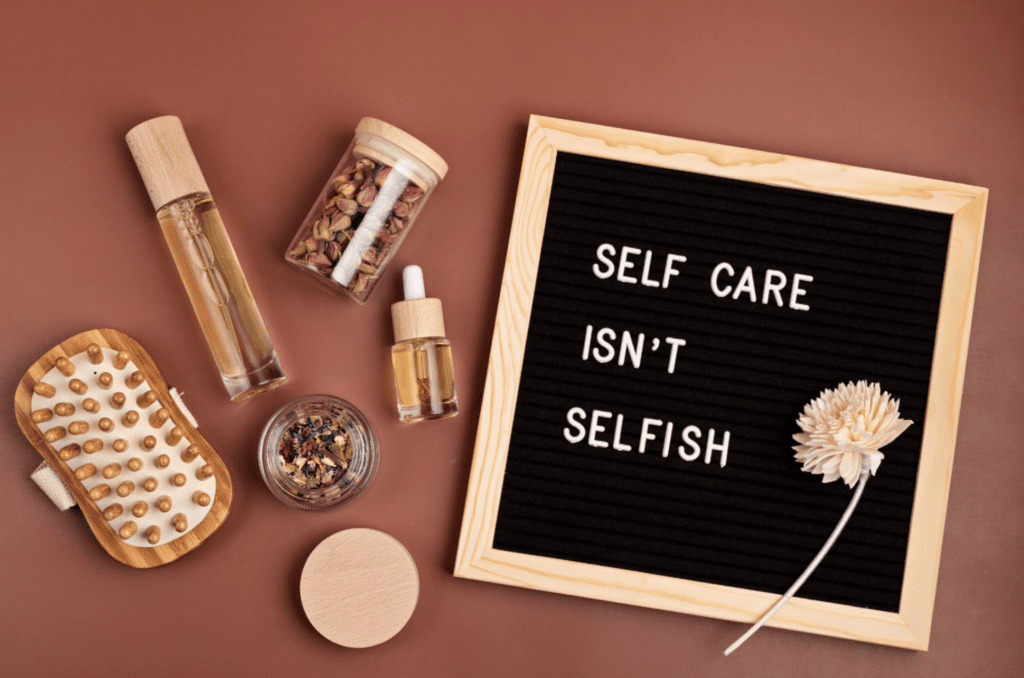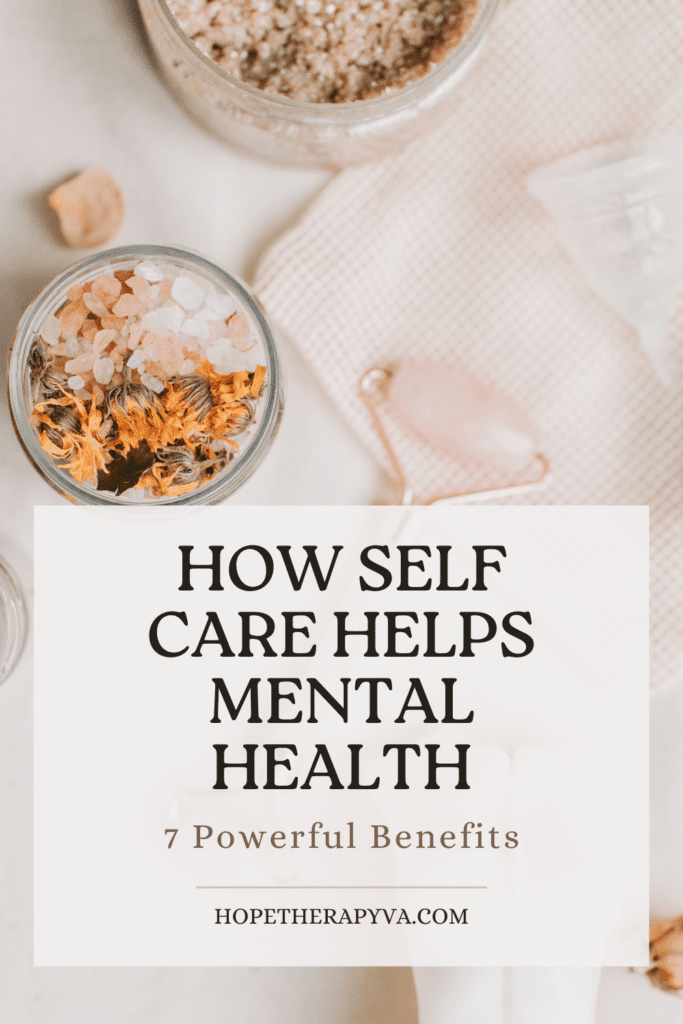Introduction
How self care helps mental health is a question many people ask when struggling with stress, anxiety, or burnout. In a fast-paced world where productivity is often prioritized over well-being, self-care is more than just a trend—it’s a necessity.
Understanding why self care is important can be the key to preventing emotional exhaustion and maintaining a healthy mind. However, there are times when self care feels like a chore, making it difficult to stay consistent. In this guide, we’ll explore seven powerful ways self-care can improve your mental health and practical strategies to make it easier.
Why Self Care is Important for Mental Health
Self-care is the intentional practice of taking time to nurture your mind, body, and emotions. Without it, stress levels can rise, leading to physical and emotional distress. When we consistently engage in self-care, we create a strong foundation for better mental health, resilience, and overall well-being.
Research shows that self-care activities, such as exercise, meditation, and quality sleep, can significantly reduce symptoms of anxiety and depression. By prioritizing self-care, individuals can experience improved mood, increased productivity, and a greater sense of life satisfaction.

How Self Care Helps Mental Health: 7 Powerful Benefits
1. Reduces Stress and Anxiety
One of the most immediate benefits of self-care is its ability to lower stress and anxiety levels. Activities such as deep breathing, journaling, or even taking a nature walk can activate the body’s relaxation response and reduce cortisol levels. Stress management techniques, including progressive muscle relaxation and guided imagery, can also help calm the nervous system.
2. Improves Emotional Resilience
Regular self-care helps build emotional resilience, allowing you to handle life’s challenges with greater ease. By setting boundaries, practicing mindfulness, and engaging in hobbies, you create emotional stability that supports long-term mental health. Emotional resilience helps you bounce back from adversity and reduces the likelihood of developing chronic stress-related disorders.
3. Boosts Self-Esteem and Confidence
Engaging in self-care routines, such as grooming, exercising, and dressing well, can boost self-esteem and confidence. When you take care of yourself, you send a message to your brain that you are valuable and deserving of care. Positive self-affirmations, engaging in social support, and setting personal goals can further reinforce self-worth.
4. Enhances Focus and Productivity
Neglecting self-care can lead to burnout and decreased productivity. Activities like taking breaks, meditating, or even listening to music can help refresh the mind, improving concentration and work efficiency. Research indicates that people who schedule regular breaks and incorporate relaxation into their routines perform better in tasks requiring cognitive effort.
5. Encourages Healthy Relationships
When you prioritize self-care, you also improve your relationships. Taking care of your mental health ensures you can show up as your best self in relationships, fostering deeper connections and reducing conflicts. Learning to communicate effectively, practicing gratitude, and setting relationship boundaries are also crucial self-care strategies that benefit personal interactions.
6. Promotes Better Sleep
Sleep is a critical part of self-care. Establishing a bedtime routine, reducing screen time, and practicing relaxation techniques can significantly improve sleep quality, which in turn enhances mental well-being. Poor sleep is linked to increased anxiety, depression, and reduced cognitive function. Developing a nighttime ritual, such as reading, listening to calming music, or using essential oils, can enhance sleep hygiene.
7. Provides a Sense of Control
Life can feel overwhelming, but self-care provides small, manageable ways to regain control. Whether it’s meal planning, organizing your space, or sticking to a workout routine, these small acts empower you to take charge of your mental health. Creating a structured daily routine can help maintain consistency and reduce uncertainty, which is often a trigger for anxiety and stress.

Additional Self-Care Strategies for Mental Health
Mindfulness and Meditation
Practicing mindfulness can help you stay present and reduce overthinking, which is often a contributor to anxiety. Meditation, guided breathing exercises, and yoga can help clear your mind and increase relaxation. Studies show that mindfulness-based interventions can significantly reduce symptoms of depression and anxiety over time.
Nutrition and Hydration
Eating a balanced diet rich in whole foods, vitamins, and minerals plays a crucial role in mental health. Nutrient deficiencies, such as low levels of vitamin D, magnesium, and omega-3 fatty acids, have been linked to mood disorders. Staying hydrated and avoiding excessive caffeine and alcohol consumption can further support mental clarity and emotional stability.
Social Connection and Support Systems
Building and maintaining social relationships can greatly impact mental health. Engaging in meaningful conversations, seeking professional therapy, or joining support groups can provide emotional relief and practical coping strategies. Research suggests that strong social support networks can act as a buffer against stress and improve overall psychological well-being.
Creative Outlets and Hobbies
Engaging in creative activities, such as painting, writing, playing music, or gardening, allows self-expression and provides a therapeutic escape from daily stressors. Hobbies can be a form of self-care that fosters joy, fulfillment, and a sense of accomplishment.

What to Do When Self Care Feels Like a Chore
There are times when self-care feels like a chore, especially when motivation is low. Here are a few strategies to overcome this feeling:
- Start Small: If full self-care routines feel overwhelming, start with one simple action, like drinking a glass of water or stretching.
- Make It Enjoyable: Self-care doesn’t have to be boring. Find activities that genuinely bring you joy, whether it’s dancing, painting, or playing with pets.
- Schedule It In: Treat self-care like an important appointment. Block out time in your calendar to ensure consistency.
- Find Accountability: Partner with a friend or join a community that encourages self-care habits.
Additional Self-Care Insights
For further insights on how self-care impacts mental health, visit Everyday Health for professional guidance and tips.
Final Thoughts
Understanding how self care helps mental health is the first step toward a healthier, more balanced life. Prioritizing self-care not only improves mental well-being but also strengthens resilience, enhances productivity, and fosters meaningful relationships.
If self-care ever feels like a chore, remember that even small actions can have a big impact. Take it one step at a time, and soon, self-care will become a natural part of your routine.
What’s your favorite self-care practice? Share it in the comments below and inspire others! 💙
By spreading awareness and encouraging self-care, we can collectively create a culture of mental well-being. If you found this article helpful, share it with someone who might need it!



